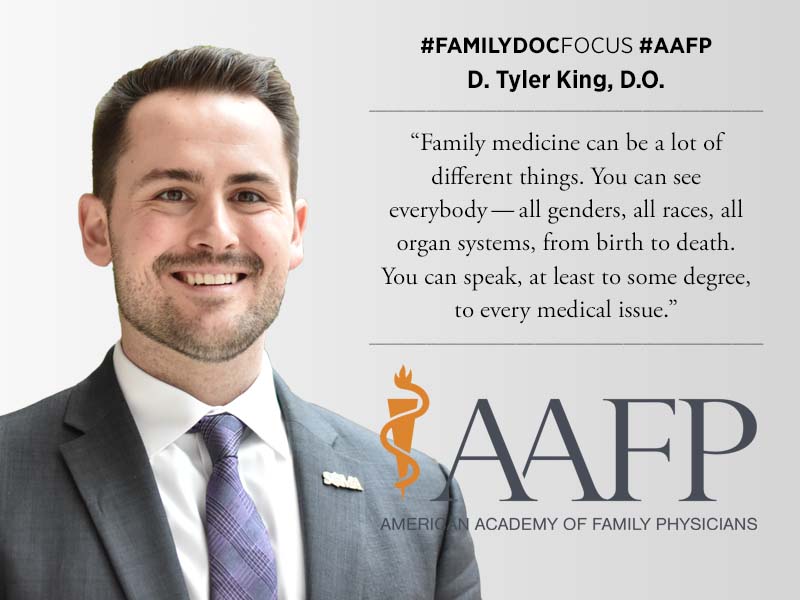Resident Determined to Make Difference on the Border
August 31, 2020, 2:56 pm David Mitchell -- D. Tyler King, D.O., grew up listening to his grandfather's stories about being a physician and knew from an early age that he, too, wanted to pursue medicine. But when King graduated from the University of Tennessee with a political science degree in 2012, he didn't feel ready for medical school.

"I needed some real-world experience," he said. "I wanted to be around people and make an impact on a community right away. It didn't feel right going straight from books to more books."
King hoped taking a "real-world" job outside of medicine would help him better understand people and make him a more empathetic doctor in the long run.
"As hard as medical school and a life in medicine are," he said, "it's not the only difficult career out there."
Take, for example, teaching teenagers.
Through Teach For America, King got a job teaching high school history at a public charter school near the U.S.-Mexico border in Donna, Texas.
Teach For America requires a two-year commitment. King stayed for four.
Although he had not started his formal medical training, King was learning about health equity, food deserts and social determinants of health.
"It's one of the most impoverished, forgotten areas of the country," he said of the Rio Grande Valley. "A large portion of my students had obesity, and many did not have regular access to medical care."
King already was pondering medical school and a career in primary care when one of his students died.
"She was a senior, applying to colleges," he said. "She was a happy, small little firecracker whose smile could light up a room. She had undiagnosed lupus. She began experiencing a headache and fever on a Friday. By Monday, she was in the ICU, septic, and passed away."
In retrospect, King said basic access to primary care might have saved the girl's life because she had the telltale, butterfly-shaped rash associated with lupus.
"As a teacher, you're not going to know that without training," he said, "but a good family physician would see that rash and ask a few questions. She never had that chance."
While he was preparing to apply to medical schools, King shadowed family physician Norma Cavazos, D.O., in Mission, Texas. After teaching during the day, King observed, Cavazos provided full-spectrum care, including various procedures, at her clinic in the evenings.
"That opened my eyes to the fact that family medicine was more than I had perceived it to be," he said. "I really liked what she was doing. Family medicine can be a lot of different things. You can see everybody -- all genders, all races, all organ systems, from birth to death. You can speak, at least to some degree, to every medical issue."
That scope was important to King because he wants to be involved in advocacy and health policy. During his time at the New York Institute of Technology College of Osteopathic Medicine at Arkansas State University, King served as national president of the Student Osteopathic Medical Association. That position gave him an opportunity to advocate on Capitol Hill about issues such as funding for the Teaching Health Center Graduate Medical Education program on behalf of an organization with more than 15,000 members.
"My experience with SOMA gave me not just confidence but leadership skills," said King, who was also a health policy intern last year for the American Association of Colleges of Osteopathic Medicine.
Now a first-year resident at the Texas Institute for Graduate Medical Education and Research, King is back on the U.S.-Mexico border serving the underserved in Laredo.
"I knew I wanted to come back to South Texas because there is so much need," he said. "I feel like I am part of meaningful work, especially given my opportunity to train at a federally qualified health center."
Laredo is also less than a three-hour drive from his wife's hometown of Monterey, Mexico.
"We can easily travel there and her family can travel here -- when there's not a border closure because of a pandemic," he said. "This is a good place for us. I love South Texas. I love the food, the culture and the people."